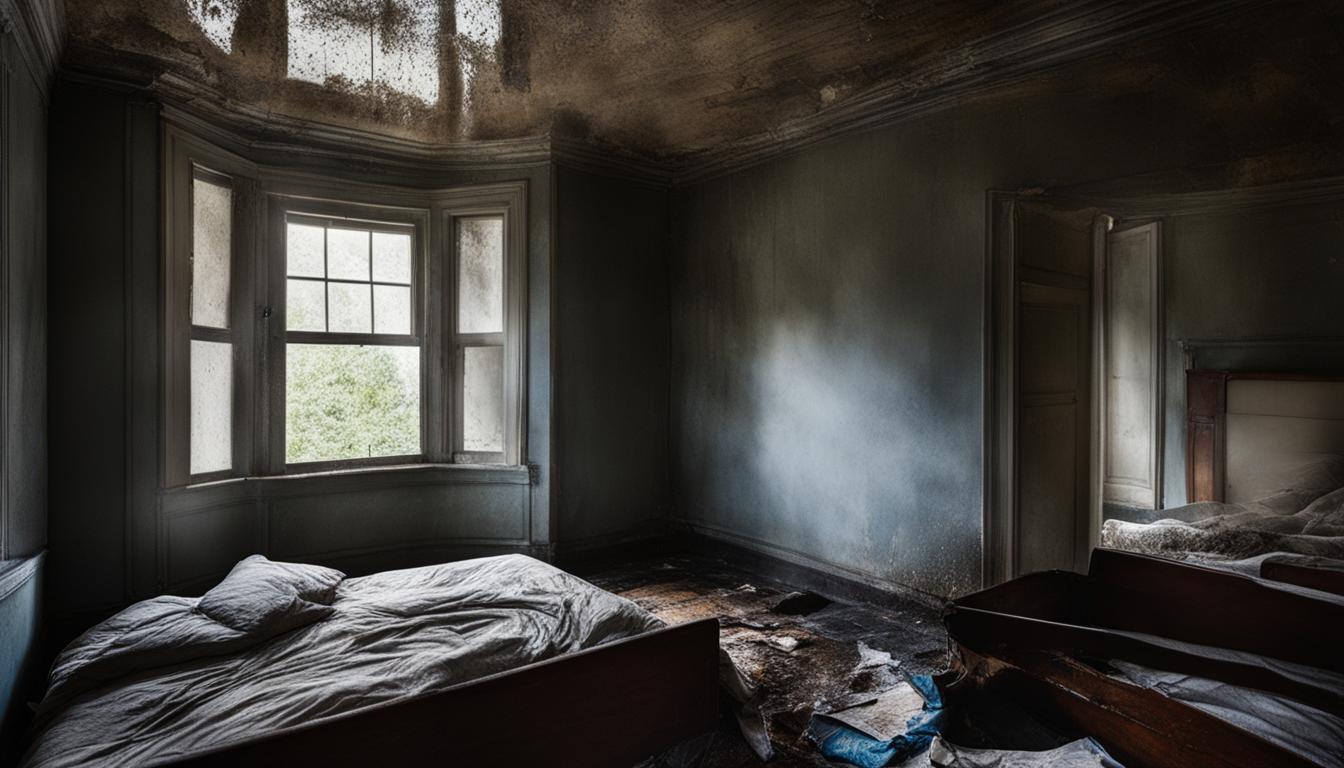If you recently experienced water damage in your house, you may be wondering if it's safe to sleep at home. While it may seem like an inconsequential matter, water damage can pose serious risks to your health and safety if left untreated.
Read on to learn more about the potential risks associated with water damage in a property and how it can affect your overall well-being.
As seen in the above table, certain molds are more dangerous than others, and they can cause different health symptoms. Therefore, it's important to identify the type of mold present in your home and take appropriate measures to limit your exposure to it. Keep in mind that mold can grow in hidden areas, such as behind walls and under carpets, which is why a professional inspection is necessary to detect its presence.
The longer water damage goes unaddressed, the more significant the structural issues can become. In severe cases, it can lead to dangerous situations such as collapsing walls or floors, making the property unfit for human habitation. Ensure you call in a licensed professional to assess the damage and make the necessary repairs to prevent any hazards.
Image alt tag: safety hazards from structural damage caused by water damage to a property.
Key Takeaways
- Water damage can lead to various risks such as structural damage, electrical hazards, health concerns, and allergens.
- Mold and mildew growth caused by water damage can trigger allergies, respiratory issues, and other health conditions.
- Ignoring water damage can weaken foundations, compromise walls and floors, and put occupants in danger.
- Water damage can damage the electrical system and pose a risk of electrical shocks and fires.
- Addressing water damage promptly and seeking professional guidance is crucial to ensuring the safety of sleeping in a water-damaged house.
Understanding the Risks of Water Damage
Water damage can lead to serious risks and hazards within a property. The longer the damage remains unaddressed, the greater the potential for lasting consequences. Some of the dangers of water damage include:- Structural damage to walls, floors, and foundations
- Health risks from mold, mildew, and other allergens
- Dangers to electrical systems, increasing the risk of electrical shocks, short circuits, and fires
Health Concerns and Allergens in Water-Damaged Homes
Staying in a home with water damage can lead to various health risks. When excess moisture accumulates in the house, it creates a favorable environment for the growth of mold and mildew, which release allergens and irritants into the air you breathe. These allergens can trigger allergic reactions, respiratory issues, and other health problems, especially in people with pre-existing conditions. If you suspect that your house's indoor air quality is compromised due to water damage, it's crucial to take action immediately to prevent further health complications. Hire professionals to assess the extent of the water damage, and follow their guidance to remediate the affected areas.| Health Risks | Types of Mold | Health Symptoms |
|---|---|---|
| Allergies | Aspergillus, Cladosporium, Penicillium | Sneezing, runny nose, itchy eyes, skin rash |
| Respiratory Issues | Stachybotrys, Chaetomium, Fusarium | Cough, chest tightness, wheezing, asthma attacks |
Structural Integrity and Safety of Water-Damaged Properties
Water damage can take a considerable toll on the structural integrity of a property. It can weaken the foundations, compromise walls and floors, and create various safety hazards that may endanger occupants.| Types of Structural Damage from Water Damage | Examples |
|---|---|
| Foundation Damage | - Cracks in foundation walls - Uneven floors or sinking - Doors and windows not opening or closing properly |
| Wall Damage | - Peeling paint or wallpaper - Bulging or cracking walls - Warped or stained drywall |
| Floor Damage | - Buckling or warping floors - Stained or discolored flooring - Damage to floor joists and supports |
Electrical Concerns in Water-Damaged Homes
If you're dealing with water damage in your home, it's crucial to be aware of the potential electrical hazards that can arise. Water and electricity are a dangerous combination, and any water damage to electrical systems must be dealt with immediately. When water comes into contact with electrical systems, it can cause short circuits, electrical shocks, and even fires, putting you and your household at risk of injury or harm. Even if the water damage was caused by clean water, the risk of electrical hazards is still prevalent. It's crucial to turn off all electrical power and immediately contact a professional electrician to assess the damage and make necessary repairs. It's dangerous to attempt to fix electrical damage yourself, and could lead to serious injury or damage to your property. Prevention is always better than cure. Take precautionary measures to prevent water damage from occurring in your home, such as regularly inspecting your pipes, ensuring proper ventilation in bathrooms and kitchens, and using water-resistant materials in areas prone to moisture.Conclusion
After understanding the hazards and risks associated with water damage, it's clear that sleeping in a water-damaged house is not safe. Your health and safety depend on prompt action to address water damage and prevent further damage. It's important to seek professional help to ensure that the property is safe to inhabit. Don't delay in addressing water damage as it can lead to significant structural, electrical and health hazards.FAQ
Is it safe to sleep in a water-damaged home?
It is not recommended to sleep in a water-damaged home due to the potential risks it poses. Water damage can lead to various hazards, including health concerns, structural integrity issues, and electrical hazards.
What are the risks associated with water damage?
Water damage can have severe consequences. It can weaken the foundation of the property, compromise its structural integrity, and create safety hazards. Additionally, it can lead to the growth of mold and mildew, trigger allergies, and cause other health problems. Water damage can also damage electrical systems, posing the risk of electrical shocks, short circuits, and fires.
Are there health concerns in water-damaged homes?
Yes, staying in a water-damaged home can have health implications. The moisture from water damage creates an ideal environment for the growth of mold and mildew, which can trigger allergies, respiratory issues, and other health conditions. It is important to address water damage promptly to prevent these health risks.
Can water damage affect the structural integrity of a property?
Absolutely. Water damage can weaken the foundation, walls, and floors of a property. Over time, it can compromise the structural integrity and stability of the building, posing a potential risk to its occupants. It is crucial to address water damage promptly and seek professional assistance to ensure the safety of the property.
What are the electrical concerns in water-damaged homes?
Water damage can damage electrical systems, resulting in electrical hazards. It increases the risk of electrical shocks, short circuits, and even fires. Wet electrical outlets, wires, and appliances in water-damaged homes should be avoided, and electrical systems should be inspected by a professional to ensure safety.





